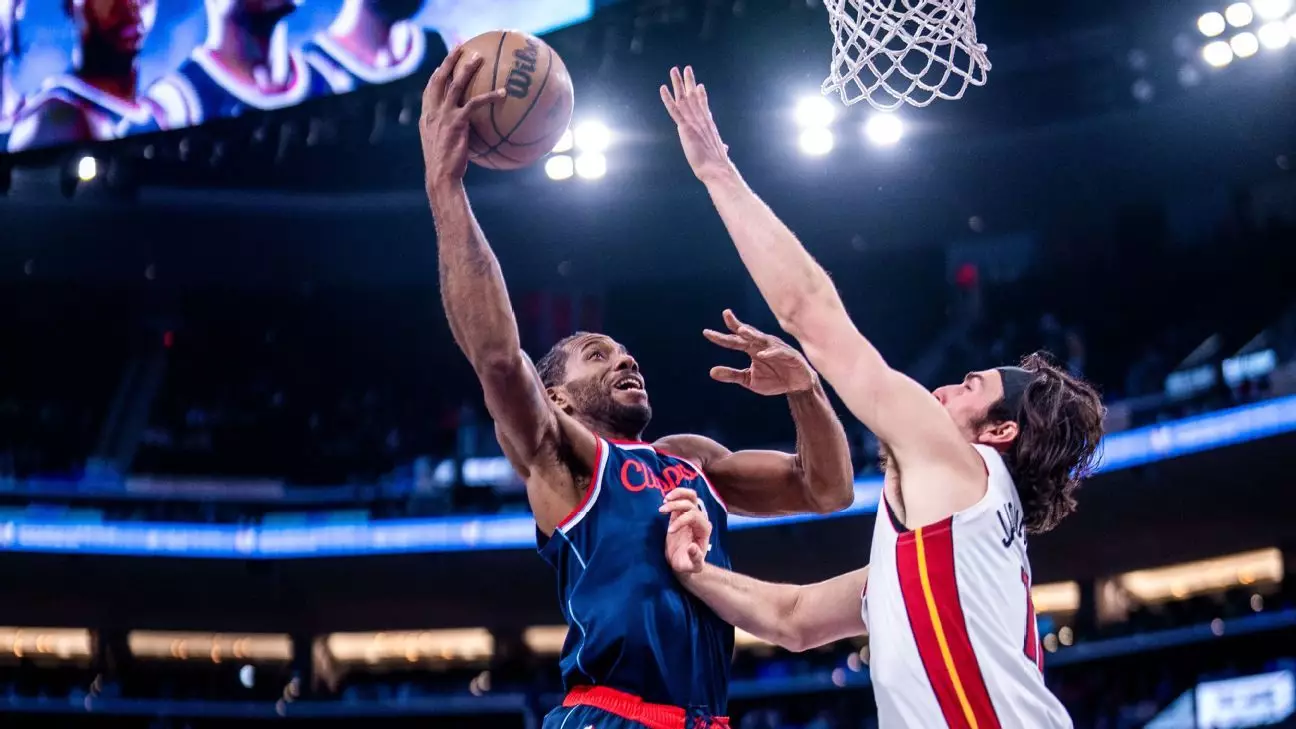Kawhi Leonard’s recent return to court as a member of the LA Clippers has sparked discussions about the importance of patience in sports rehabilitations. Since his season debut, Leonard has embraced a cautious approach, expressing a strong desire to avoid the pitfalls that have previously set him back. “I’m taking my time,” he stated, emphasizing that his prior experiences of rushing back to play resulted in setbacks that kept him sidelined longer than necessary. His current performance, while not electrifying with just six points in a recent game, is a testament to his strategy of gradual reintegration into the team dynamics.
The Clippers, currently positioned sixth in the Western Conference with a 21-17 record, have been navigating their season with a solid foundation prior to Leonard’s return. They boasted a winning record of 19-15, showcasing their capabilities even in his absence. As Leonard works his way back to peak physical form, both he and his teammates are focused on maintaining their momentum. James Harden noted the essential nature of gradually reintegrating Leonard into their established play style, highlighting the importance of conditioning and game flow. This effort reflects an understanding among the Clippers that success hinges on chemistry, particularly when incorporating a player of Leonard’s caliber, who has long been recognized as one of the league’s elite talents.
Despite limited minutes—averaging just around 20 per game since his return—Leonard’s mere presence on court significantly alters the Clippers’ strategy. His ability to draw defenders and create opportunities enhances the overall effectiveness of the team’s offense. Leonard himself acknowledged this interplay: “I’m just playing really and trying to do my job to help the team win,” he remarked after a game, underscoring his commitment to contributing to the success of his teammates rather than solely focusing on individual statistics.
Leonard’s journey extends beyond the basketball court. Recent wildfires in the Los Angeles area compelled his temporary withdrawal from the team to address family safety. His dedication to ensuring his loved ones were secure during such emergencies further exemplifies the multidimensional challenges that professional athletes face off the court. When asked about the wellbeing of his home, Leonard’s candid response highlighted the extensive impact of natural disasters, reminding everyone that circumstances beyond sports greatly influence an athlete’s performance.
As Kawhi Leonard continues to rehabilitate his knee and reintegrate into a Clippers team that has shown resilience, the future seems promising but requires caution. With collective support from his teammates, a well-calibrated return strategy, and a focus on both physical and mental wellness, Leonard is poised to rediscover his dominant form in due time. The road to recovery in professional sports is often complex, and Leonard’s disciplined approach may very well serve not just his career but also provide a model for athletes facing similar trajectories.


Leave a Reply